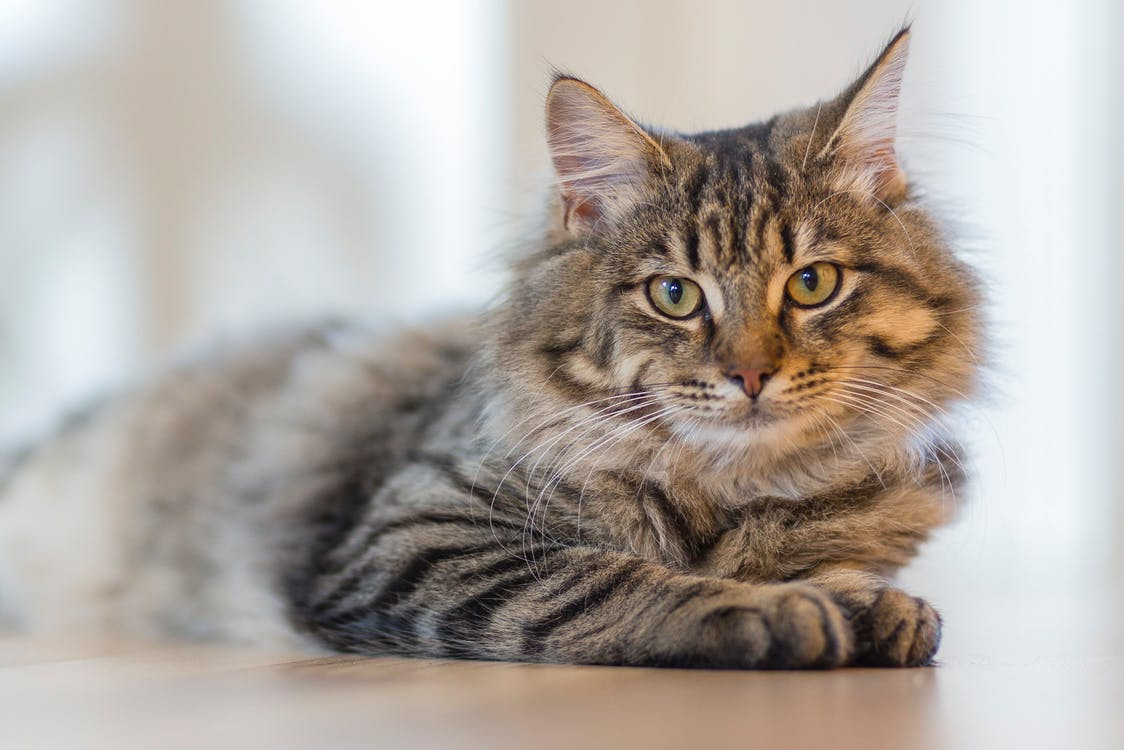Why Do Cats Purr?
The purring of a housecat is perhaps the softest, gentlest, and most peaceful sound that exists in this world....

- 4 min read
- 533 Views
The purring of a housecat is perhaps the softest, gentlest, and most peaceful sound that exists in this world. Cat lovers would often argue that perfection was attained when God created these fuzzy gentle creatures.
However, despite the purr being one of the most common and well-loved sounds from a cat, we know a lot less about it than other sounds. So why do cats purr? Well, research indicates it has lots to do with different emotions other than just contentedness. Let’s explore some of them.
- The Obvious: Contentedness and Safety
Cats purr most often when they are feeling safe and happy. When a cat is truly feeling at peace with you, you can hear the gentle rumbling in the throat and belly and this is the best sign that they are not only okay with being pet but are actively seeking more of it. Happy purring is also accompanied by stretching, closed eyes, and if being a pet, reaching out your hand for more pets.
- When They Want Food
Housecats often purr with their humans when they are hungry. However, this is a bit of a different purr. They purr with a strange, yowling sound, often said to resemble a baby’s cry. It is easily distinguishable from their usual purrs and gives a sense of urgency. However, this isn’t very common as cats usually prefer to meow in hunger.
A cat’s hungry purring will often accompany them bumping their head into your leg or hand, insistence for you to follow them, and meowing to get your attention. Cats are very in tune with their body and once the hungry purring starts, it's often a good idea to feed them unless they are on a professionally recommended diet with smaller portions in which case, their stomachs will adjust after only a few days.
- To Communicate With Their Mother
Kittens can’t meow in their early days and resort to purring to let their mother know they are okay and feeling safe. Kittens will often purr rather than meow with their mother in the early days to communicate their needs. However, this habit sometimes does not die down and until they reach adulthood (and in some cases after too), they will occasionally purr to their mother to communicate. This is often accompanied by cuddling with their mother, licking her, or being more playful with her.
- To Heal
Research indicates that purring at certain frequencies can help cats heal faster. IT helps them to repair broken bones, heal wounds, and help muscle tears, and internal pain. This is why you might find a cat purring loudly after a fright or being hurt. While fright doesn’t hurt cats, it makes them feel as if they have been hurt by the threat they face. When they are frightened, purring will accompany flattened ears and a puffed-up coat to help reduce anxiety. It could also lead to their paws being sweaty.
However, when cats purr to heal, they will often seek out a spot they feel safe (often a secluded, dry spot), curl up in the most pain-free position, and rest with their eyes closed before purring. This purring can often go on for quite some time and is a lot louder than usual.
- To Comfort
While cats don’t purr to comfort other hurt cats, they do purr to comfort humans. Cats, often adult cats, see humans as defenseless creatures to be protected as they don’t follow their customs of cleaning, hunting, or feeding.
This is also why cats may lick you (to bathe you), bring you dead animals from hunts (so that you may eat), and even get a bit aggressive during playtime (to teach you to hunt and to protect yourself). When they sense that their human is injured or upset, they may curl up beside them and purr very loudly to try to heal them. This is the most comforting and loving thing an animal can perhaps do and apparently, it does help!
Conclusion
Humans associate purring with comfort and often find this pleasing which allows the brain to relax at the sound, thus reducing heightened negative emotions and even pain. So anyone who says cats are unfeeling, selfish creatures, couldn’t be more wrong. Cats are some of the most protective and caring animals out there and the bond they form with those they love is unbreakable and sacred to them.
So the next time someone asks, ‘why do cats purr?’ Hopefully, you have a solid few reasons to tell them. While there are other reasons and communication often does vary from feline to feline, these are some of the most common reasons for a purring cat.